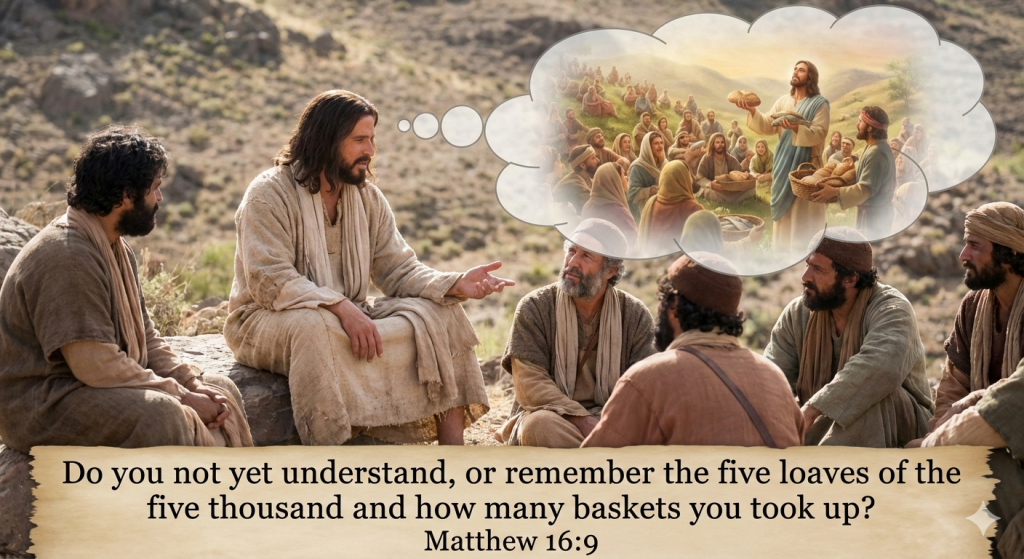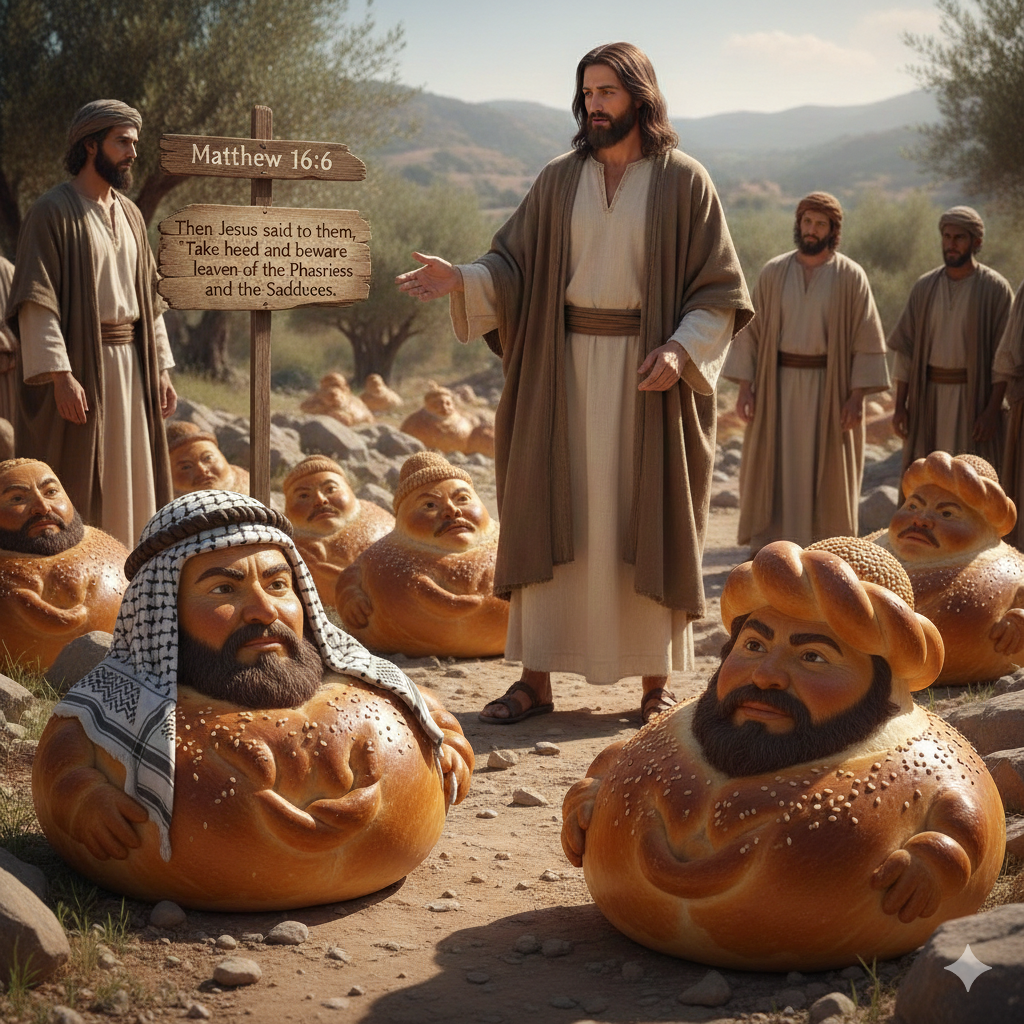Monday, 26 January 2026
Do you not yet understand, or remember the five loaves of the five thousand and how many baskets you took up? Matthew 16:9
Note: You can listen to today’s commentary courtesy of our friends at the “Bible in Ten” podcast. (Click Here to listen).
You can also read this commentary, scrolling with music, courtesy of our friends at “Discern the Bible” on YouTube. (Click Here to listen), or at Rumble (Click Here to listen).
“You grasp, not yet, nor you recollect the five loaves – the five thousand, and how many handbaskets you took?” (CG).
In the previous verse, Jesus called the disciples little-faithed for thinking His words were about not having brought bread. Now, He continues His rebuke, saying, “You grasp, not yet, nor you recollect.”
Two new words are seen here. The first is oupó, not yet. It is derived from ou, no, or not, and po, an enclitic particle of indefiniteness meaning yet, or even. Taken together, they form the thought of “not yet.” The disciples were slow on the uptake, and Jesus is letting them know it is so.
The second new word is mnémoneuó [mnay-mon-YOO-oh], to exercise the memory. Thus, it signifies to recollect or remember. Jesus is letting them know that they need to pay attention, consider, exercise their memories, and recollect what had already taken place… right in front of their eyes.
What they needed to recollect is a continuation of the question, saying, “the five loaves – the five thousand, and how many handbaskets you took?”
These same men had been with Jesus when there was almost nothing to eat, and yet, from five loaves, He had multiplied the bread to feed five thousand people. The disciples were not thinking things through clearly. But Jesus isn’t done yet. He has more to remind them before He finishes.
Life application: What is it that is causing you to question your faith, or to lack faith in something the Bible says? If you believe the word, you will remember that the Bible says God created everything by simply speaking the word. The Bible also says that everything is currently being held together by the power of that same word.
God fashioned every living thing on the planet to do certain things. For example, bees spend their lives gathering nectar to make honey. God had to design everything in the process of making honey to work together. There have to be flowers that make nectar.
There needs to be bees to gather the nectar. At the same time, they pollinate other flowers and plants as they move around. There has to be rain and sunshine for the plants to grow. Bees have to have a little compass in their heads to direct them. There has to be a communication system set up for them to tell other bees about where the best spots to go are.
Really… think about it. You could spend all day thinking of things necessary for bees to make honey. And even then, you still wouldn’t have all of the parameters necessary for it to happen. And yet, everything has been set up by God so that we have honey.
If He puts this much attention into such a process, don’t you think He is tending to the fulfillment of His word to His people? Think of all that it has taken to preserve Israel. They became a nation and have endured for thousands of years, despite all that the Bible and recorded history tell us has come upon them.
But His word said this would be the case. We are without excuse in believing that God can do what His word says. The evidence is right in front of us in ten jillion ways. Don’t be discouraged or disheartened about whether God will fulfill His word to you. He will.
When all is said and done, there will be a life for us that is so much more wonderful than this one that we cannot even imagine what lies ahead. Have faith! God has got everything under control. Be confident of this.
Lord God, we do have moments of weakness from time to time. Help us in such times to remember all that You have done and are doing. Our insignificant little issues will fall into their proper place in our minds when we consider all You are doing. Surely, You have all things under control! Amen and amen.





